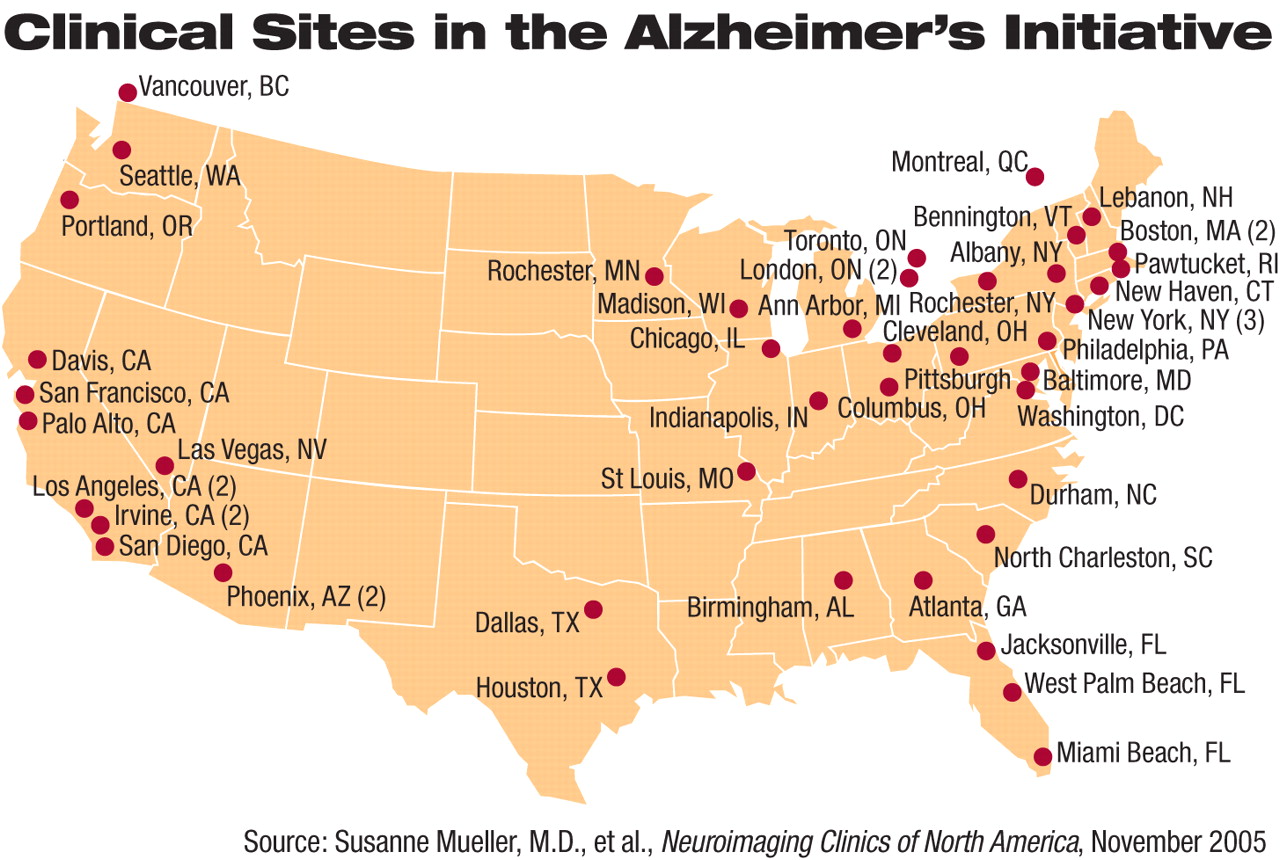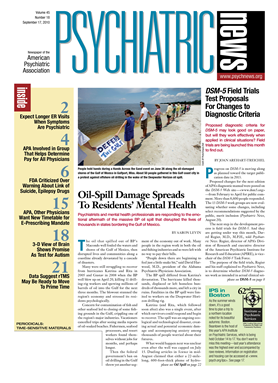Not long ago, a consortium of pharmaceutical companies, research foundations, and patient-advocacy organizations—known as the Coalition Against Major Diseases—announced that data on more than 4,000 subjects who had participated in 11 company-sponsored Alzheimer's disease trials were being released to qualified scientists throughout the world. The goal was to accelerate Alzheimer's research (Psychiatric News, August 6).
But this was not the first time that various parties had come together to speed Alzheimer's research. A group called the Alzheimer's Disease Neuroimaging Initiative has been doing so since 2003.
It was the idea of Neil Buckholtz, Ph.D., chief of the Dementias of Aging Branch at the National Institute on Aging, and of William Potter, Ph.D., a neuroscientist at Eli Lilly, and is a public/private partnership funded by the National Institutes of Health, several drug companies, the Alzheimer's Association, the Institute for Study of Aging, and the NIH Foundation. Its annual cost is about $60 million.
The primary goal of the initiative is to bring both academic and pharmaceutical researchers together in a gargantuan scientific endeavor—to determine, in some 800 subjects, whether brain imaging, other biological markers, and clinical and neuropsychological assessment could accurately measure the progression of mild cognitive impairment and early Alzheimer's disease. The enterprise would involve participating sites throughout the United States and Canada.
Dilip Jeste, M.D., the Estelle and Edgar Levi Chair in Aging and a professor of psychiatry at the University of California, San Diego, is not involved in the initiative, but is familiar with it. Another key feature of the initiative, he said in an interview, was “the decision to make assessments uniform. This was no small task, given the enormous variations that exist across research groups in terms of neurocognitive tests or fMRI measures or PET ligands, to name a few issues. Having everyone agree on the measures themselves was a nontrivial accomplishment.”
Still a third crucial feature of the initiative, Jeste explained, was an agreement among participating scientists to “make all the data public immediately, with no one owning the data or obtaining patents.”
Companies as well as academic researchers are using the initiative's data, the New York Times reported on August 13. There have been more than 3,200 downloads of the entire massive data set and almost a million downloads of the data sets containing images from brain scans.
“The initiative has demonstrated the feasibility of partnerships among the National Institutes of Health, industry, and academic researchers and the extent to which shared data can be leveraged by researchers throughout the world,” Eric Reiman, M.D., told Psychiatric News. Reiman, executive director of the Banner Alzheimer's Institute in Phoenix, Ariz., has taken part in the initiative.
The initiative has also set up a scientific process that is being emulated in Australia, China, Europe, Japan, and Korea, Michael Weiner, M.D., pointed out. Weiner, director of the Center for Imaging of Neuro-degenerative Diseases at the Veterans Administration Medical Center in San Francisco, is the principal investigator of the initiative.
Information about the Alzheimer's Disease Neuroimaging Initiative is posted at <www.adni-info.org>. 

